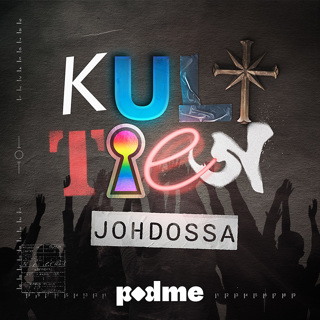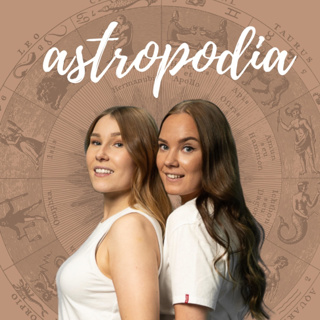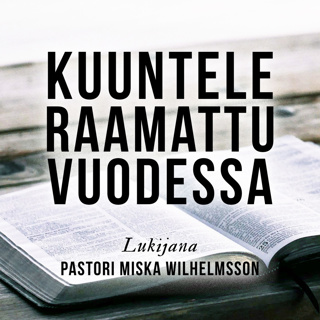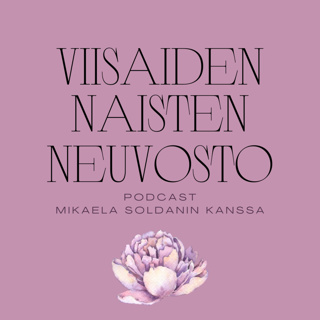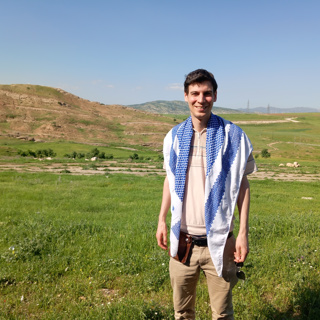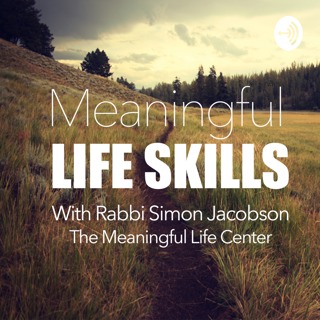
5 Ways to Build Trust
Truthfulness Responsibility Understanding Security Tenacity How important is trust in our lives and relationships? Do we appreciate the crucial role it plays? Are we aware of the impact trust has -- for good and for bad -- on virtually every decision we make? Trust is the heartbeat of our existence, a beacon that guides our decisions and relationships. It’s a pivotal force, often underestimated, yet it shapes every aspect of our lives. Like the sturdy foundations supporting a skyscraper, trust endows us with unwavering security, affirmation, and self-worth, enabling us to reach our full potential and broaden our perspectives. Born out of unconditional love, trust is a seed planted in our hearts during childhood by our loved ones, forming the solid ground upon which all future relationships stand. Recognizing its importance becomes starkly apparent in its absence, as life without trust is a shadowy landscape of fear and uncertainty. In light of the essential function of trust, the question arises: how can we build and foster trust, particularly if it has been shattered early in our lives? Join Rabbi Jacobson in a meaningful conversation where he delves into five key strategies to build trust in your life, encapsulated in the acronym T.R.U.S.T: Truthfulness, Responsibility, Understanding, Security, Tenacity. These principles offer a roadmap to nurturing and fortifying trust in our personal and professional relationships, establishing a profound connection to our own core identities and those of others.
14 Maalis 202434min

Are Individuality and Love Compatible
As we journey through life, two essential elements guide us: love and individuality. These core values nourish our growth and well-being. Love completes us, while individuality allows us to be true to ourselves. However, can these two intricate needs coexist without contradiction? As individuals, our primary focus leans towards self-preservation and ensuring our unique needs are met, and that we aren’t mistreated or compromised. Love, conversely, calls for empathy, sensitivity, and unselfish care for others, even at our own inconvenience. The question then arises: can we harmonize these two seemingly divergent forces? Join Rabbi Jacobson as he discusses this intriguing topic. Is there a way for love and individuality to coalesce? Uncover the elusive third element that seamlessly merges these two entities into a force greater than their individual parts. It’s the secret ingredient to cultivating true peace and harmony in your home, your workplace, and the world. Join us and unlock the secret to this harmonious blend.
11 Maalis 202434min

Is Arrogance Masking Ignorance and Insecurity
The root of many problems and disagreements in life is arrogance. But what exactly is arrogance? And how do you deal with it; both with your own personal arrogance and with the arrogance of others? Ostensibly, we think of arrogance as a result of an overinflated ego. Take a gifted individual who is endowed with unique qualities and virtues. Instead of humbly recognizing them as a blessing to share, the person feels superior to others, resulting in a pompous, condescending attitude. Or someone who has grown up with a sense of entitlement and snobbery, being told repeatedly that he is better than his peers, very likely that he will develop an exaggerated sense of his importance. But what is less emphasized is that arrogance can actually be the result of the exact opposite: insecurity and lack of self-esteem. Arrogance — a false bravado and conceit — is a defense mechanism to cover up feelings of inadequacy, hiding it behind a facade of faux haughtiness and standoffishness. Let’s think about this logically for a moment. If someone is very secure with themselves and their position in life, why should they feel threatened by another? Why would they need to demean others in order to feel better about themselves? A secure person knows who they are, allowing them to coexist with everyone else. It is only when someone lacks confidence and is not comfortable with themselves, that they then need to use arrogance as a shield to protect them from the “threat” of others. Please join Rabbi Simon Jacobson as he unravels the complexities of arrogance, illuminating its roots, allowing us to “nip it in its bud” and address it at its core. Discover ways that help us free ourselves of arrogance’s ugly symptoms and complications; in self-awareness, in relationships, and in communication, both interpersonal and intrapersonal.
28 Helmi 202433min

How to Create Miracles in Your Life
Were you ever in a situation where you wished a miracle would happen in your life? Someone close to you may have been ill or suffering in some way, or you may have experienced a setback, or faced a difficult predicament. You really hoped and prayed for a miracle to happen.All of us at some point will have moments when we wish for a miracle to save us from a seemingly helpless and hopeless circumstance. But here's the question: is there even such a thing as a miracle? Or is it simply wishful thinking, a nice escape into fantasy, as skeptics and cynics would have us believe? Is it the futile attempt of a desperate person seeking a delusionary lifeline to take them out of his misery? As Leonard Cohen sadly bemoans the man waiting "half my life away" for the miracle to come.Or are miracles truly possible, and most people believe. And many testify to having experienced a miracle in their lifetime. But what actually is a miracle? And can we create miracles in our lives? Please join Rabbi Simon Jacobson in this potentially life-changing presentation, and discover the surprising nature of a miracle, and how miracles are happening all around us all the time. Learn how to uncover and unleash the miraculous energy within your life -- how to see the extraordinary in the ordinary, the supernatural in the natural. It is in fact up to you whether you will live an ordinary and one dimensional life or an extraordinary and miraculous one.
22 Helmi 202428min

Finding Joy in the Dark Moments
Can you find joy in difficult times? Is it possible to find happiness during dark days? Joy and happiness are critical for a healthy life. We all know what it feels like when we're happy, when we're joyous and celebrating; experiencing the joy not just externally but also internally. Inner joy creates a state of peace and calm, a sense of belonging and serenity: life just feels right.But it's one thing to experience joy in good times, when things are going well. What about when things are not going so well? Can you find joy amidst tragedy, grief, loss or setbacks? This question poses a catch-22 situation. On one hand joy is what allows us to be buoyant and hopeful, it helps us build our confidence and gives us courage. On the other hand, hardships tend to demoralize and deflate us. So how do you find joy when you are feeling dejected and discouraged? Is it possible? Please join Rabbi Simon Jacobson as he dissects the anatomy of joy, and discover surprising insights about the power of joy: Joy is now about what you do, it's who you are. True joy is not a result of what happens to you, it is the natural state of your soul. When you connect to your soul and its mission, you can find happiness and a sense of belonging in everything that comes your way, including difficulties.By appreciating the inherent joy within the reservoirs of your spirit, you will learn life-changing tools to access these reservoirs, and draw from them into your daily life.
15 Helmi 202425min

What is Intelligence: IQ vs. EQ
What is intelligence? Human beings are considered to be the most intelligent of creatures; we value the mind, education, smart people... But as is often the case, we use a word without defining the axioms and assumptions that define the concept behind that word?What exactly is intelligence? Is it IQ - the intelligent quotient , or is it EQ - the emotional quotient? Intellectual intelligence vs. emotional intelligence. Book smart vs. street smart. Knowledge vs. common sense. Facts vs. imagination.We often see brilliant geniuses lacking basic life and people skills. And vice versa, those considered simple and yet capture people’s hearts and souls, at times taking the world by storm. So is intelligence really about brain power or is there something more to it? Please join Rabbi Simon Jacobson for this vital discussion about the very definition and nature of intelligence, and discover a whole new perspective on the role of the mind. Understanding the meaning and purpose of intellect, which affects each one of us — our choices, our children, our leaders, our academia, our universities — will influence how we think and our decision making process; it will help address cognitive dissonance and the schism between our ideals and values and our actions and behavior; and it will dramatically transform how we educate the next generation, which in turn will determine our destiny and future.
7 Helmi 202432min

The Kabbalah of Today’s Global Conflicts: The Battles between Islam, Christianity and Judaism
With the current war raging in Israel, the big question returns. Why is it that this region - more than anywhere else in the entire world - has had so many battles and fought so many wars over the last three millennia? From the beginning of Biblical times with the war over the land of Canaan and the land of Israel, to the wars waged by the Assyrians, Babylonians and the Romans (just to name a few), to the rise of the major religions, Judaism, Christianity and Islam battling over control of Jerusalem and the promised land - the Middle East is in a perpetual state of war.Today's war is nothing new. This doesn't diminish the tragedy, and the pain and suffering, but seeing this centuries-old pattern behooves us to retrace the steps and explore the history and the roots of these battles.Please join Rabbi Simon Jacobson in this eye-opening discussion and discover the underlying historical, religious and spiritual forces at work here. Recognizing the root of the issues will help us seek out sustainable and long-term solutions.
1 Helmi 202435min

What Jews Really Think of Gentiles
What do Jews really think of gentiles? With Jews in the news yet again, dominating headlines as they so often do -- the war in Israel, rising antisemitism -- all the big timeless questions rise to the surface: Why is the world so obsessed with Jews? What are the roots of antisemitism? Why are Jews hated so much by some people, and respected by others? But a question that's less often asked is the other way around: what do Jews really think about non-Jews? Ostensibly, one would naturally expect that the Jews developed tremendous fear, animosity and hate toward the nations of the world due to the sheer extent of Jewish persecution perpetrated over the millennia -- expulsions, discrimination, violence, inquisitions, pogroms, and of course, the 20th century Holocaust. Can you imagine anyone not developing massive distrust of gentiles who have historically (with few exceptions) oppressed the Jews throughout history? Take the Holocaust, in which six million Jews were annihilated, with the world remaining mostly complicit through their silence. But is that really true? Do Jews hate gentiles? Do they look down at them? Antisemitic literature and media would sure have you believe that. (The fabricated Protocols of the Elders of Zion -- the most notorious and widely distributed antisemitic publication of modern times -- is one example). They cite Jewish texts, distorting them as derogatory quotes about non-Jews. But what is the meaning of some of these texts? And how about the concept of Jews being the "chosen people" -- does that suggest that gentiles are inferior? So what indeed is the true attitude of Jews to non-Jews? You may be surprised and even shocked by the answer. Please join Rabbi Simon Jacobson and discover what Jews really think about non-Jews -- very different from what you would expect. Learn some profound, counterintuitive truths, which will leave you with new and fresh hope, and a gameplan on how to build a unified and loving future -- with harmony between all human beings, Jews, gentiles and all peoples of the world.
25 Tammi 202446min




